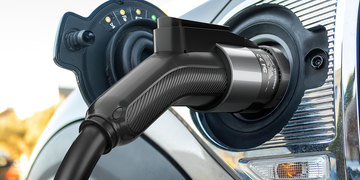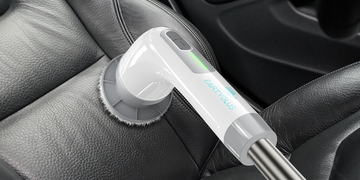As more people make the switch to sustainable transportation, the demand for efficient and accessible EV charger infrastructure is growing. In this article, we will explore the world of EV chargers, their types, benefits, challenges, and the role they play in shaping the future of transportation.
Types of EV Chargers:
Level 1 EV Chargers:
These chargers use a standard household outlet (120 volts) and are often the slowest option.
Suited for overnight charging at home, providing an average of 4-8 miles of range per hour.
Level 2 EV Chargers:
Require a 240-volt power source, offering faster charging than Level 1.
Commonly found in residential settings, workplaces, and public charging stations.
Deliver approximately 25-30 miles of range per hour, reducing charging time significantly.
DC Fast Chargers (Level 3):
High-powered chargers capable of delivering a substantial amount of energy in a short time.
Ideal for long-distance travel and commonly found along highways and in commercial areas.
Can provide an 80% charge in as little as 30 minutes, making them crucial for reducing charging stops during road trips.
Benefits of EV Chargers:
Environmental Impact:
EVs produce zero tailpipe emissions, contributing to cleaner air and a reduction in greenhouse gas emissions.
The use of renewable energy sources to power EV chargers further enhances their environmental benefits.

Convenience and Accessibility:
Home charging stations offer the convenience of charging overnight, ensuring a full battery each morning.
Public charging stations provide flexibility for those without access to home chargers or during long journeys.
Reduced Dependence on Fossil Fuels:
EVs and their charging infrastructure contribute to reducing reliance on traditional fossil fuels, promoting energy independence.
Telgeoot Level 2 EV Charger Station
The Telgeoot EV Charger Station is a Level 2 electric vehicle charger that charges any EV (Compatible with all electric vehicles in the United States, including Tesla (Tesla electric vehicles require an adapter), Jeep, Chevrolet, Volvo, Audi, Ford, Honda, etc.) It comes with a 20’ cable with an SAE J1772 connector. Its watertight NEMA Type 4 enclosure is made to withstand the elements outdoors.
Features and Benefits:
· UL Certified Indoor/Outdoor
· Electric Car Charger EVSE SAE J1772, NEMA 14-50 Plug
· Up to 44 mi of range added per hour at 11KW / 48 amp output
· Auto-sensing handle to open charge port
· Monitor and manage your charging schedule and usage from the Tesla app
· Wi-Fi connectivity for over-the-air updates, remote diagnostics and access controls
· Versatile indoor / outdoor design
· Variable amperage configurations depending on installation location
· Power-share with up to six Wall Connectors
· 20-foot cable length
· One-year warranty for residential use
As the world shifts towards sustainable transportation, EV chargers play a pivotal role in facilitating the widespread adoption of electric vehicles. With ongoing advancements in technology and concerted efforts to expand charging infrastructure, the future looks promising for electric mobility. The convenience, environmental benefits, and reduced dependence on fossil fuels make EV chargers key players in shaping a cleaner and more sustainable transportation ecosystem.





